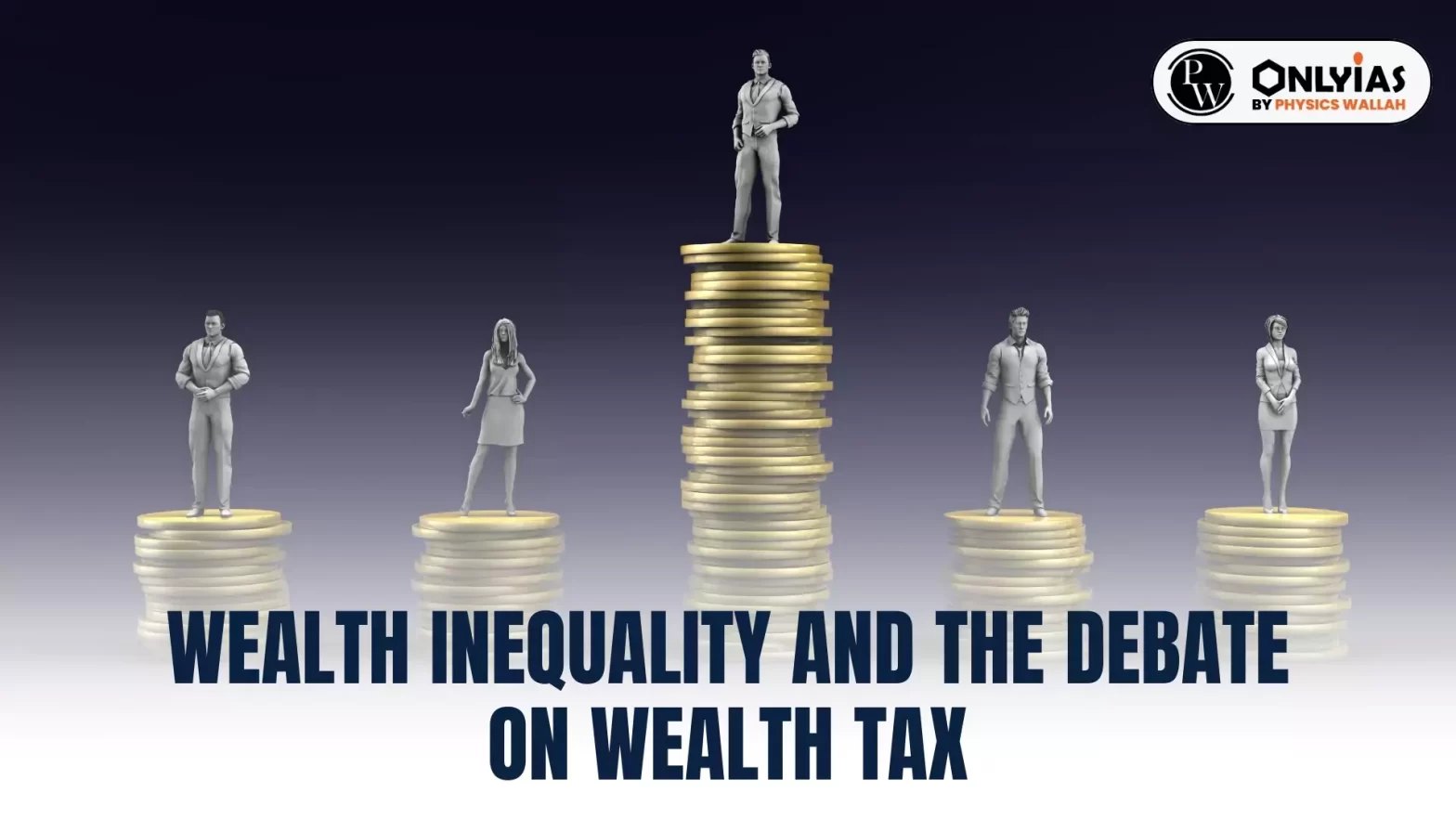Context
As per a report of the World Inequality Lab (Income And Wealth Inequality In India, 1922-2023), inequality has risen worldwide, especially after COVID-19.
| Relevancy for Prelims: Wealth Tax, Kuznets curve, World Inequality Lab and Henley Private Wealth Migration Report.
Relevancy for Mains: Rising Economic Inequalities and Wealth Tax- Need, Significance and Challenges. |
Rising Economic Inequality
-
Rising Inequality Worldwide:
-
- Top 1% Dominance: The top 1% accounted for more than two-thirds of wealth generation since 2020.
- Bottom 50% Marginalised: The bottom 50% own only 2% of the world’s wealth.
-
Concerning Condition in India:
- Economic Inequality in India is worse than the colonial period, with the top 1% owning 40% of India’s wealth and taking away 22.6% of national income every year.
- India’s Inequality is one of the highest in the world.
-
Rousseau on Economic Inequality:
- Rousseau argued that economic inequality stems from the institution of private property and the resulting accumulation of wealth by a minority, leading to a disparity in power and freedom.
- “Eat the Rich” is commonly attributed to Rousseau, a renowned political philosopher and leading figure in the French Revolution: “When the people shall have nothing more to eat, they will eat the rich.”
The Case for a Wealth Tax
- Failures of Current System: The present taxation system is failing to redistribute wealth. Super rich avoid income tax through low salaries and wealth in shares/property. The Kuznets curve theory (inequality rises then falls with development) has failed.
- Potential Benefits: A 2% wealth tax on the super-rich could fund health, education, and reduce inequality.
What is Wealth Tax?
- A Kind of Direct Tax: A direct tax on individual assets such as cash, shares and property.
- India’s Wealth Tax Act: India’s Wealth Tax Act 1957 imposed a 1% tax on earnings over Rs 30 lakh/year. The Act was introduced in 1957 but repealed in 2015 due to improper implementation.
- Global Presence: Wealth tax still exists in some countries like Switzerland, Norway and Spain.
- G20 finance ministers are also discussing a global minimum tax on billionaires.
- Generation of High Revenue: The European tax think tank, EU Tax Observatory, has recommended a global minimum tax of 2% on billionaires’ wealth, which could generate around $250 billion annually.
- They also called for a strengthened global minimum tax on multinational companies, which could raise an additional $250 billion per year.
Arguments in Favour of Wealth Tax
- Reduces Wealth Gap: A wealth tax reduces the wealth gap and creates a fairer society.
- Contribution to Society: The rich should pay more for benefiting from society’s resources.
- Funds Public Goods: Wealth tax revenue can fund public goods and services.
- Encourages Investment: A wealth tax encourages productive investment over hoarding.
Arguments Against Wealth Tax
- Flight of High Net Worth Individuals: A wealth tax could lead to the flight of high-net- worth individuals from the country.
- As per the Henley Private Wealth Migration Report of 2023, India is the country with the second-highest outflow of high networth individuals globally, next only to China (net loss of 13,500).
- Compliance Costs: India abolished its wealth tax in 2015 due to litigation and compliance costs.
- Asset Valuation Disputes: Difficulty in valuing assets leads to disputes and legal challenges.
- Harms to Consumption and Employment: A wealth tax could harm consumption and employment by the middle and upper classes.
- Existing High Taxes: The super-rich are already taxed at 42.74% plus a 2% surcharge.
- Indirect Tax Efficiency: Indirect taxes are considered more efficient with low direct tax compliance.
Conclusion
India needs a shift in its fiscal policy that needs such measures that can create employment opportunities. As various countries have introduced the wealth tax, India can introduce a progressive wealth tax along with other fiscal steps to counter the growing inequalities.
Also Read: Regional Income Disparities In India
| Prelims PYQ (2019):
In the context of any country, which one of the following would be considered as part of its social capital?
(a) The proportion of literates in the population
(b) The stock of its buildings, other infrastructure and machines
(c) The size of population in the working are group
(d) The level of mutual trust and harmony in the society
Ans: (d) |
![]() 28 Mar 2024
28 Mar 2024
